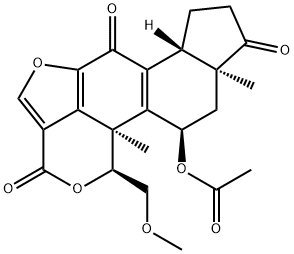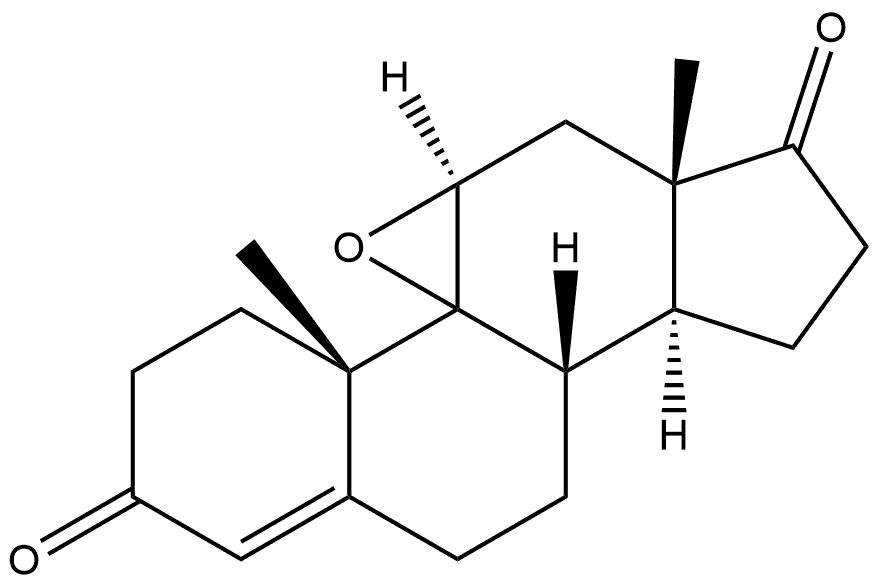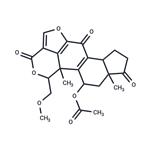Description
Wortmannin (19545-26-7) is a potent and selective inhibitor of PI3-kinase which acts via covalent modification of Lys-802.2?Inhibits autophagy in rat hepatocytes.3?Inhibits adipocyte differentiation of 3T3-L1 cells.4?Wortmannin is useful tool for probing PI3-K-mediated cellular events.5
Chemical Properties
White to pale yellow powder
Uses
Wortmannin, Ready Made Solution has been used:
- as a phosphoinositide 3-kinase (PI3K) pathway inhibitor
- as an endoderm-inducing agent in stem cell selection and differentiation
- as a autophagy inhibitor
Uses
Wortmannin is used as inhibitor of phosphatidylinositol 3-kinase, used cell biology reagent that has been used previously in research to inhibit DNA repair, receptor-mediated endocytosis and cell proliferation. It inhibits fMLP induced PIP3 and superoxide anion production in guinea pig neutrophils. It blocks insulin metabolic effects in rat adipocytes without affecting the insulin receptor tyrosine kinase activity.
Uses
Wortmannin is a steroidal metabolite belonging to the viridin group, isolated from Penicillium wortmannii in 1957. The structure was finally solved in 1968. Wortmannin exhibits broad spectrum antifungal activity, together with antitumour and antiinflammatory activity. Wortmannin is a potent inhibitor of phosphoinositide 3-kinase and myosin light chain kinase. Wortmannin also activates neutrophil and formyl-Met-Leu-Phe-mediated phospholipase D, inhibits autophagy, potentiates LPS-induced NO production and induces Alzheimer-like hyperphosphorylation in tau in vivo.
Definition
ChEBI: Wortmannin is an organic heteropentacyclic compound, a delta-lactone, an acetate ester and a cyclic ketone. It has a role as an EC 2.7.1.137 (phosphatidylinositol 3-kinase) inhibitor, an anticoronaviral agent, a geroprotector, an autophagy inhibitor, a Penicillium metabolite, a radiosensitizing agent and an antineoplastic agent.
Biological Activity
Potent, selective, cell-permeable and irreversible inhibitor of phosphatidylinositol 3-kinase (PI 3-kinase) (IC 50 = 2-4 nM). Also potently inhibits polo-like kinase 1 (PLK1) (IC 50 = 5.8 nM).
Biochem/physiol Actions
Wortmannin is a low molecular weight; hydrophobic fungal metabolite with a sterol-like structure produced by Penicilium fumiculosum. Inhibition of PI3K/Akt signal transduction cascade by wortmannin, enhances the apoptotic effects of radiation or serum withdrawal and blocks the antiapoptotic effect of cytokines. PI3K inhibition by wortmannin also blocks many of the short-term metabolic effects induced by insulin receptor activation. Research has demonstrated that wortmannin inhibits two enzymes from mitotical division, key regulators Polo-like kinase (Plk) family, Plk1 and Plk3.
storage
-20°C (desiccate)
References
1) Holleran et al. (2003), Use of high-performance liquid chromatography to characterize the rapid decomposition of wortmannin in tissue culture media; Anal. Biochem., 323 19
2) Wymann et al. (1996), Wortmannin inactivates phosphoinositide 3-kinase by covalent modification of Lys-802, a residue involved in the phosphate transfer reaction; Mol. Cell. Biol., 16 1722
3) Blommaart et al. (1997), The phosphatidylinositol 3-kinase inhibitors wortmannin and LY294002 inhibit autophagy in isolated rat hepatocytes; Eur. J. Biochem., 243 240
4) Tomiyama et al. (1995), Wortmannin, a specific phosphatidylinositol 3-kinase inhibitor, inhibits adipocytic differentiation of 3T3-L1 cells; Biochem. Biophys. Res. Commun., 212 263
5) Ui et al. (1995), Wortmannin as a unique probe from an intracellular signaling protein, phosphoinositide 3-kinase; Trends Biochem. Sci., 20 303




